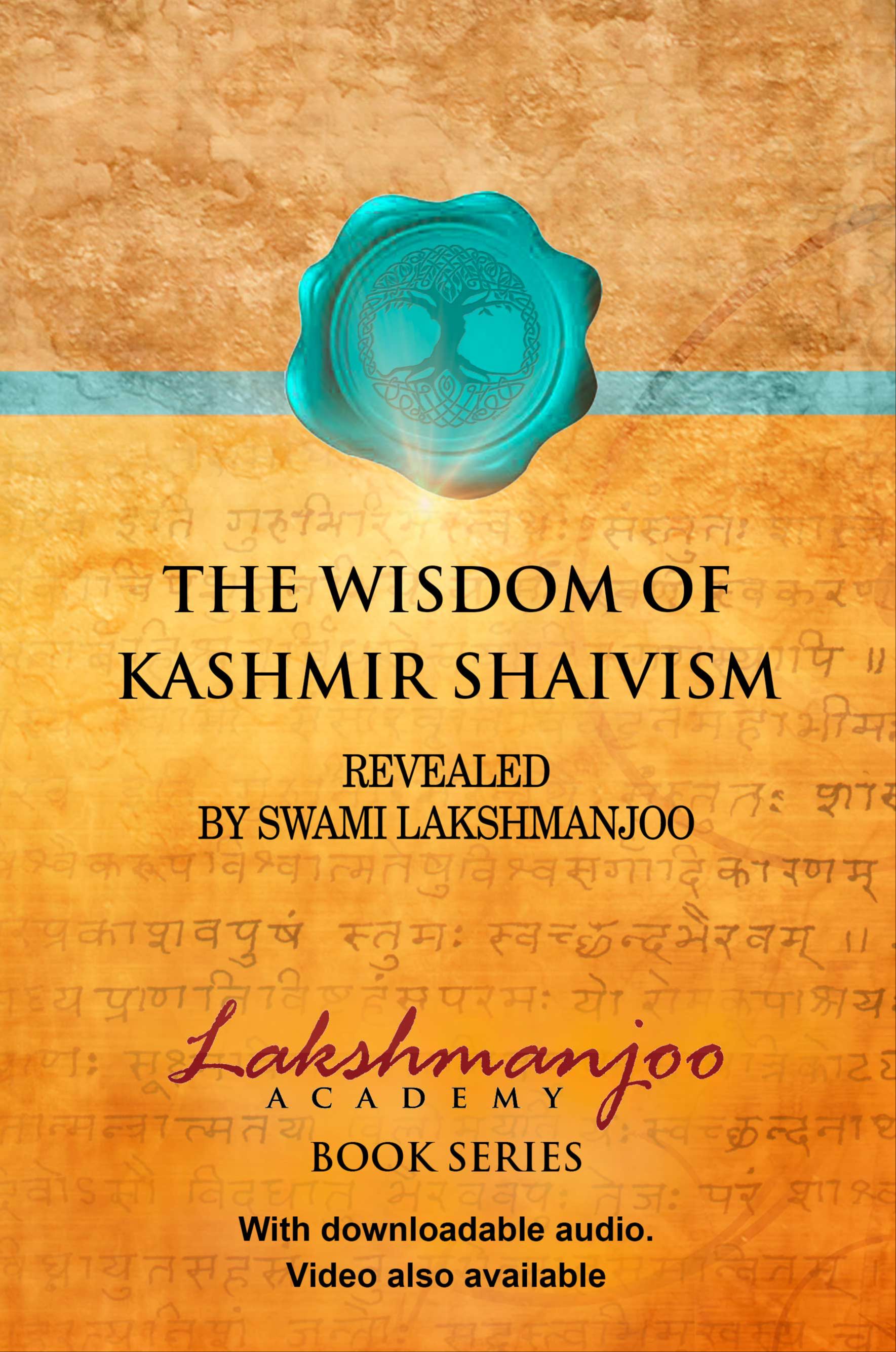
"Whatever I take is offered to Lord Shiva, whatever I offer is for Lord Shiva, whatever I offer is itself Lord Shiva.” ~Swami Lakshmanjoo
This verse, well known throughout India, is traditionally recited before taking food. Drawing on Abhinavagupta’s Unique Explanation Of “Brahmarpanam Brahma Havir…” Swamiji further elaborates with the first verse of Somānanda’s Śivadṛṣti. Somānanda’s was the guru of Utpaladeva, who reformulated Śivadṛṣti into the Pratyabhijñā philosophy. Utpaladeva’s disciple was Lakṣmanagupta, who was one of the spiritual teachers of Abhinavagupta, the most illustrious teacher in the tradition of Kashmir Shaivism.
This is part of the series of the Bhagavad Gita, In the Light of Kashmir Shaivism, by Swami Lakshmanjoo Chapter Four, verse 24.
Yajñāyetyuktam;–tat-svarūpaṁ sāmānyaṁ tāvadāha [comm.]. First He explains what is yajña, what is the typical meaning of yajña.
DVD 4.2 (13:08)
ब्रह्मार्पणं ब्रह्म हविर्ब्रह्माग्नौ ब्रह्मणा हुतम् ।
ब्रह्मैव तेन गन्तव्यं ब्रह्मकर्मसमाधिना ॥२४॥
brahmārpaṇaṁ brahma havir brahmāgnau brahmaṇā hutam /
brahmaiva tena gantavyaṁ brahmakarmasamādhinā //24//
Other commentators have [commentated]: brahmārpaṇaṁ, you offer it to supreme Brahman. Whenever you put a thali [plate] in front of you, you take achamana (water); just after yajña, you take achamana. Don’t you take achamana? When you perform yajña of our master, when there is time of taking food, Shamlal [and I], we put some water in our palms and recite this śloka:
brahmārpaṇaṁ brahma havir brahmāgnau brahmaṇā hutam /
brahmaiva tena gantavyaṁ brahmakarmasamādhinā //24//
Brahmārpaṇaṁ, whatever I take is offered [arpaṇam] to Lord Śiva. Whatever I have to offer is for Lord Śiva. Whatever I offer is itself Lord Śiva. I have to offer Lord Śiva in Lord Śiva. Brahmārpaṇaṁ brahma havir brahmāgnau. I have to offer this food to my body, to my stomach. What is the stomach? Stomach is Lord Śiva. I am offering this food to Lord Śiva in my stomach. In my stomach also is the residence of Lord Śiva.
Brahmārpaṇaṁ brahma havir brahmāgnau brahmaṇā hutam. And then offering, the act of offering is also Lord Śiva. [The one] who offers [and] the offering itself is the play and drama of Lord Śiva.
This is brahma karma samādhi. Brahma karma samādhi means whatever you do, it is only brahma; everywhere [there is only] brahma [Lord Śiva].
Somānanda also has said:
asmadrūpa samāviṣṭaḥ svātmanātma nivāraṇe /
śivaḥ karotu nijayā namaḥ śaktyā tatātmane // 103
Asmadrūpa samāviṣṭaḥ, I have to bow. Who is ‘I’? Asmadrūpa samāviṣṭaḥ, that is Śiva. Śiva has to bow. [To] whom Śiva has to bow? Asmadrūpa samāviṣṭaḥ svātmana, myself, I am bowing to Śiva [who is] myself. Who is myself? Śiva. Asmadrūpa samāviṣṭaḥ, Śiva. Ātma nivāraṇe, for removing obstacles. What are obstacles? Śiva! Obstacles also are Śiva. For removing Śiva away. Which Śiva?
JOHN: Obstacles.
SWAMIJI: Obstacles. Obstacles are Śiva. We have to remove that Śiva. For removal of that Śiva, I am doing prānam [bowing] to Śiva, i.e., myself, for removal of these obstacles; śivaḥ karotu, let Śiva do prānam [to Himself]. Tat-ātmane, who is universal Śiva, in the end he will become universal Śiva. That is, he will take the seat of Parabhairava in the end, where everything is everything [sarvasarvātmakam].
Obstacles are Śiva, everything is Śiva, that is Śiva, [the one] who does this is Śiva, by whom it is done . . . the way how he does prānam is Śiva, to whom he does prānam is Śiva, by whom he does prānam is Śiva, for the sake of whom he does prānam is Śiva, for destroying the obstacles which are Śiva. To destroy those obstacles, he does prānam [to Śiva]. And in the end, he does prānam and resides in tat-ātmane (tat-ātmane means [that] which is everywhere Śiva). That is the Parabhairava state.
That is brahmārpaṇaṁ brahma havir brahmāgnau brahmaṇā hutam. This is brahma karma samādhi; this is samādhi of brahma karma. This way, no other commentator has commentated upon [this verse] like this as Abhinavagupta has done.
––––––
103 Śivadṛṣti, 1.1.
Source: Bhagavad Gita, In the Light of Kashmir Shaivism, by Swami Lakshmanjoo
All Content is subject to Copyright © John Hughes.






